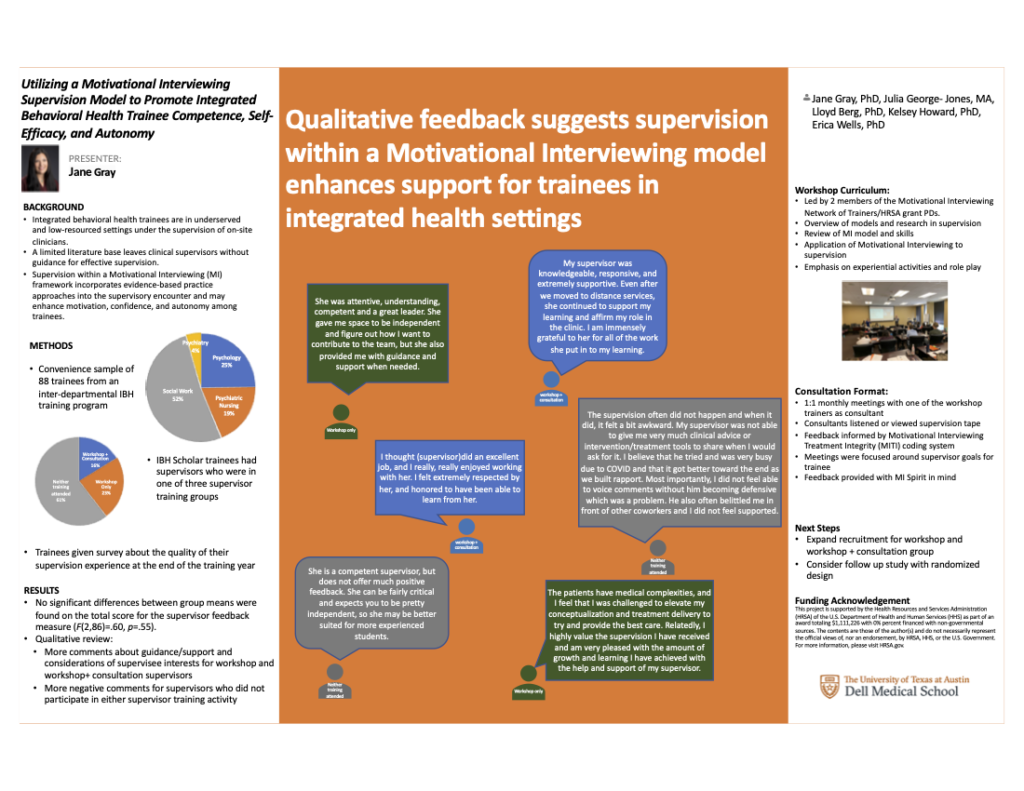Training in integrated health involves placing trainees in underserved and low-resourced settings under the supervision of busy clinicians. Although supervision is an important professional role in integrated health settings, a limited literature base leaves clinical supervisors without guidance for effective supervision. Supervision within a Motivational Interviewing (MI) framework incorporates evidence-based practice approaches into the supervisory encounter and may enhance motivation, confidence, and autonomy among trainees. The present study explores the potential impact of an MI approach to supervising trainees in integrated settings. The IBH Scholars program is a university-based program for graduate level learners in psychiatric nurse practitioner, social work, psychology, and psychiatry training programs, supported with funding from the Health Resources and Services Administration in the form of GPE, BHWET, and OWEP grants. The program emphasizes training in MI as a core evidence-based intervention. In AY 2019-20, an advanced MI supervision workshop and monthly follow up consultation was designed for clinical site supervisors. IBH Scholars included 43 trainees in three supervision groups: no MI workshop or follow up consultation (n=28), MI workshop only (n=8), and MI workshop + follow up consultation (n=7). Trainees participated in a survey of their supervision experience, including questions about how much their supervisors affirmed their strengths, accurately understood their concerns, cultivated skill development related to their training goals, supported their autonomy, and used an organized structure for supervision. No significant differences between group means were found on the total score for this measure (F(2,40)=1.387, p=.26). However, qualitative review revealed that supervisors who participated in the MI workshop and follow-up consultation were rated higher on dimensions of guidance/support and considerations of supervisee interests, while supervisors who did not attend the MI workshop or consultation received more negative comments about a lack of independence, lack of organization/consistency of supervision, and harsh/critical supervisory style. Study limitations include small sample size and non-randomized group assignments. Nonetheless, comments from trainees suggest promise in utilizing an MI-based supervision model to increase trainee perceptions of competence, autonomy and self-efficacy in the integrated behavioral health setting.
Spring Virtual Conference April 17-18th | In-Person Annual Conference in San Antonio, TX Oct 24-26th


Appreciate the video with the poster and the work!